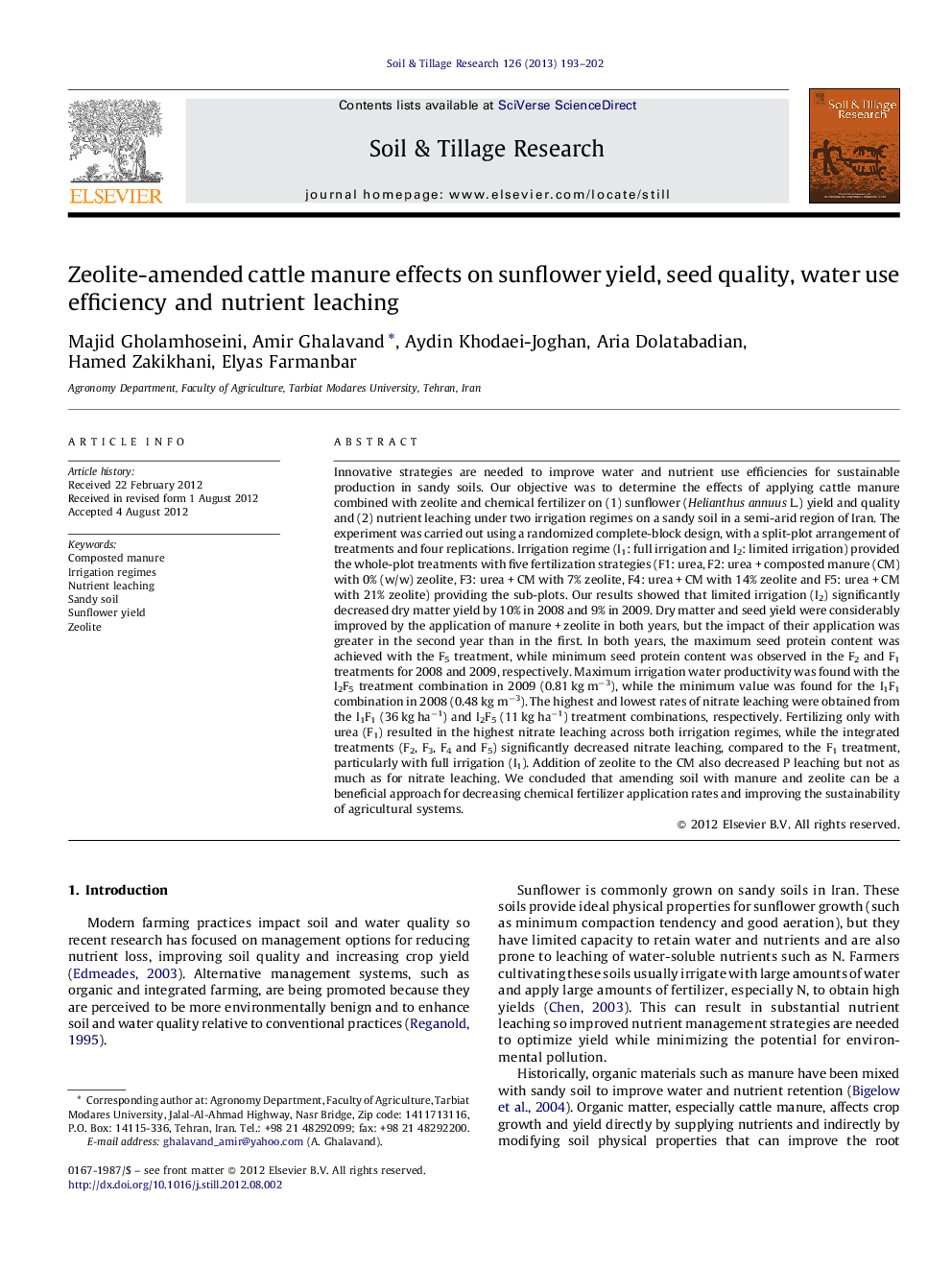| کد مقاله | کد نشریه | سال انتشار | مقاله انگلیسی | نسخه تمام متن |
|---|---|---|---|---|
| 305981 | 513064 | 2013 | 10 صفحه PDF | دانلود رایگان |

Innovative strategies are needed to improve water and nutrient use efficiencies for sustainable production in sandy soils. Our objective was to determine the effects of applying cattle manure combined with zeolite and chemical fertilizer on (1) sunflower (Helianthus annuus L.) yield and quality and (2) nutrient leaching under two irrigation regimes on a sandy soil in a semi-arid region of Iran. The experiment was carried out using a randomized complete-block design, with a split-plot arrangement of treatments and four replications. Irrigation regime (I1: full irrigation and I2: limited irrigation) provided the whole-plot treatments with five fertilization strategies (F1: urea, F2: urea + composted manure (CM) with 0% (w/w) zeolite, F3: urea + CM with 7% zeolite, F4: urea + CM with 14% zeolite and F5: urea + CM with 21% zeolite) providing the sub-plots. Our results showed that limited irrigation (I2) significantly decreased dry matter yield by 10% in 2008 and 9% in 2009. Dry matter and seed yield were considerably improved by the application of manure + zeolite in both years, but the impact of their application was greater in the second year than in the first. In both years, the maximum seed protein content was achieved with the F5 treatment, while minimum seed protein content was observed in the F2 and F1 treatments for 2008 and 2009, respectively. Maximum irrigation water productivity was found with the I2F5 treatment combination in 2009 (0.81 kg m−3), while the minimum value was found for the I1F1 combination in 2008 (0.48 kg m−3). The highest and lowest rates of nitrate leaching were obtained from the I1F1 (36 kg ha−1) and I2F5 (11 kg ha−1) treatment combinations, respectively. Fertilizing only with urea (F1) resulted in the highest nitrate leaching across both irrigation regimes, while the integrated treatments (F2, F3, F4 and F5) significantly decreased nitrate leaching, compared to the F1 treatment, particularly with full irrigation (I1). Addition of zeolite to the CM also decreased P leaching but not as much as for nitrate leaching. We concluded that amending soil with manure and zeolite can be a beneficial approach for decreasing chemical fertilizer application rates and improving the sustainability of agricultural systems.
► Sandy soil has limited capacity to retain nutrients and is prone to leaching.
► Manure with zeolite was more effective than chemical treatment for plant and soil traits.
► Reduction of N leaching by zeolite increased plant-available N and N use efficiency.
► Efficiency of zeolite for reducing NO3− leaching is greater than for P leaching.
► For sustainable production in sandy soil integrated use of treatments is recommended.
Journal: Soil and Tillage Research - Volume 126, January 2013, Pages 193–202